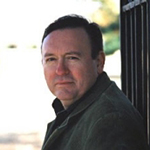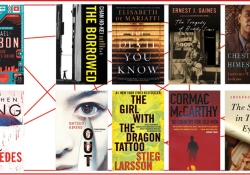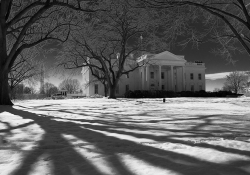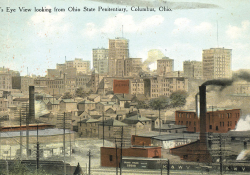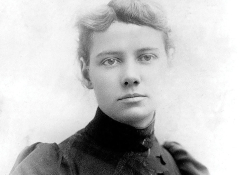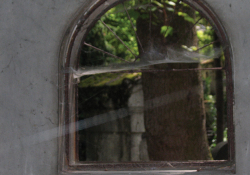The Disorganized Organization: The International Association of Crime Writers after Three Decades
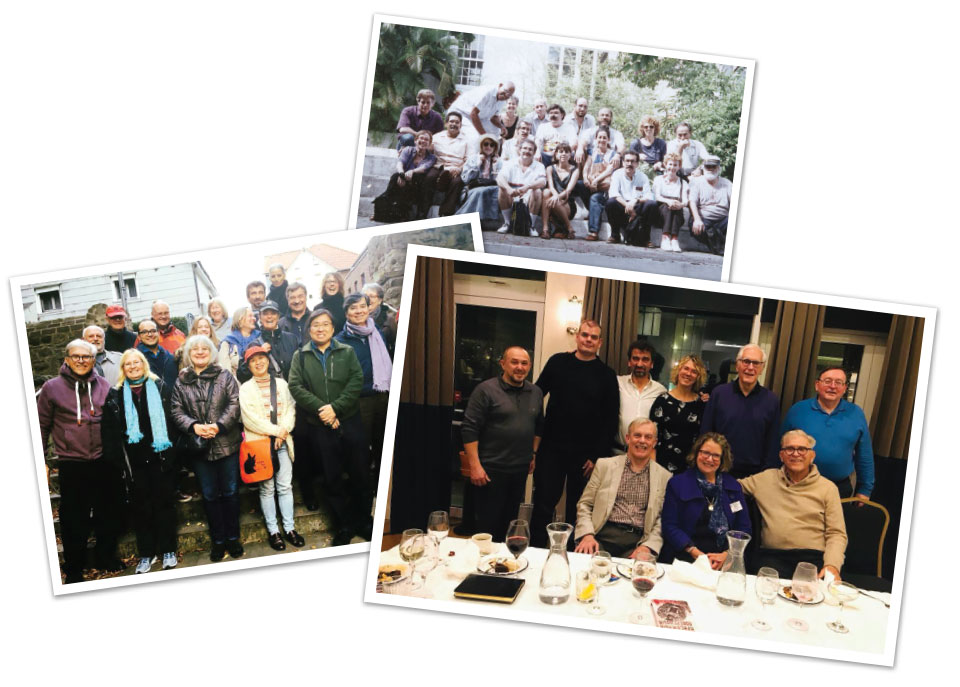
CIRCUMSTANCES WERE QUITE different in 1986 when the International Association of Crime Writers was founded. Ronald Reagan was the US president. Spain and Portugal had just joined the European Economic Community. On the positive side of the ledger, dictators Ferdinand Marcos and “Baby Doc” Duvalier were booted from their palaces that year. On the negative, the Challenger space shuttle and the Chernobyl nuclear disasters both occurred. Global tensions ran high, not the least of which were fears that hardliners might seize control of the Soviet Union, reversing Gorbachev’s reforms, and finally turn the Cold War hot.
There are conflicting accounts of the founding of the International Association of Crime Writers, but the usual story is that a group of writers, mostly Latin American, were invited to a hotel in Havana and included Jiří Procházka of Czechoslovakia, Paco Ignacio Taibo II and Rafael Ramírez Heredia of Mexico, Daniel Chavarría of Uruguay, Julian Semyonov of the USSR, and Alberto Molina and Rodolfo Pérez of Cuba. Roger Simon and William Bayer of the United States were also soon involved. The organization’s early objective was to increase communication among crime writers of all nations, but particularly across the Iron Curtain as it weakened. Fueled initially by the indefatigable Taibo’s enthusiasm (which in turn was fueled by an endless parade of Coca-Colas and cigarettes), the group grew to an estimated thousand members. Taibo is still making news this year as the controversially appointed head of Mexico’s state press, the FCE (Fondo de Cultura Económica).
The organization’s early objective was to increase communication among crime writers of all nations, but particularly across the Iron Curtain as it weakened.
Generally called AIEP (“aye-ep”) from the Spanish acronym of Asociacón Internacional de Escritores Policíacos, the association held meetings in many locations over the years in cities such as Amsterdam; Daun, Germany; Berlin; Vienna; Gijón, Spain; Reykjavík; Frontenac, France; Antwerp; Havana; Varna, Bulgaria; Prague; Toronto; Oxford; and even Oklahoma City. Although the meeting was often associated with, for convenience’ sake, fan meetings or book fairs, with panels open to the public, most of the meetings were intended for the writers to share information about the art and publishing of crime writing. Some countries without a culture of crime writing joined to seek guidance in developing their art. Others intended to promote the translation of their native works into the American and British markets.
Meetings held in the “Eastern bloc” were often sponsored by the writers’ unions, and the impossibility of controlling writers’ normal unruliness was viewed with more than a little wariness. Eastern writers were sometimes accompanied by a “watcher.” There was a meeting in Prague in which the attendees were aware that one of the Czech delegates was in danger of arrest if the organization passed a motion supporting free speech, which the government took a dim view of. In the US (and I understand in the UK), occasionally AIEP was attacked for being “a bunch of Commies,” to quote an eminent American publisher. “Anarchists” might have been more appropriate, as the argument about how organized the group should be continues to this day. A constitution was finally composed in 1995, and I remember how proudly Canadian author Eric Wright described his struggle to have AIEP adopt Robert’s Rules of Order. It was probably easier for Hannibal to cross the Alps, but like Hannibal, Eric accomplished the impossible.
When the Cold War ended, AIEP continued as an organization for the purpose of promoting crime writing as art, as legitimate art, as “literature.”
When the Cold War ended, AIEP continued as an organization for the purpose of promoting crime writing as art, as legitimate art, as “literature.” Even in the nations in which crime writing is beloved, it is often regarded as “mere entertainment,” unworthy of full recognition. In many countries, crime novels were not even reviewed, and in smaller countries such as Estonia, the limited number of readers in that language made it impossible to make a living writing crime fiction. Various AIEP members also helped writers from countries in which crime writing had not fully evolved. Murder and mayhem are common enough subjects in all national literatures, but the patterns of crime writing developed primarily in France and the English-speaking world. Plotting, subject matter, and other issues with a local bent could almost guarantee to destroy any chance of the writing finding an international audience. With the opening of what is commonly called globalism, however, multinational publishers flooded foreign markets with authors like Stephen King, Robert Ludlum, and Sue Grafton. Americans (pretty insular readers by comparison) also opened up more to translated crime novels. Americans seem much happier trying to say Sigurðardóttir, Indriðason, and Chinese and Japanese names, finding pleasure in the distinctive qualities of Henning Mankell and the Scandinavian noir authors, enjoying Fred Vargas and Pierre Lemaitre, and many other non-English writers.
Many of the issues AIEP had became less common. The world was moving toward “the end of history.” As a result, however, AIEP suffered a kind of listlessness. There was talk among the membership that it had outlived its usefulness and evolved into a social club. Not everyone thought this was bad. Meeting other writers to discuss and grouse about the common issues of the writer’s vocation can be satisfying, inspirational, and pleasant. It may seem frivolous and not very cost effective to travel a long way to have dinner with strangers, to paraphrase Faulkner, but it allows you the solace that you’re not alone in your curious addiction to writing.
At the moment, the strongest local branch of AIEP is that of North America, which includes the United States and Canada. I currently serve as president and have served in the past as the global president. About three hundred writers are members, and certain requirements—like publication of fiction or nonfiction or dramatic works dealing primarily with crime—are required for membership. Almost alone among the branches in charging annual dues, it has its own web page, a weekly email newsletter, and a semiannual printed newsletter with a smattering of reviews, accounts of meetings, and a list of new translations into English.
The proudest activity of IACW North America is the awarding each year of the Dashiell Hammett award for Literary Excellence in Crime Writing. A similar Spanish-language Hammett has been awarded in Latin America in the past. Literary excellence is hard to define, but all writers have a sense of it and aspire to achieve it. Both fiction and nonfiction are open to the prize, as well as books not normally considered mysteries, if they have a crime theme. Some of the nominees since its inception in 1991 have included Robertson Davies, Joyce Carol Oates, Norman Mailer, Michael Connelly, Michael Ondaatje, Ernest J. Gaines, James Lee Burke, Michael Chabon, and Margaret Atwood, but a variety of first-time writers have joined them, advancing their careers with an award that has gained much distinction. A shortlist is prepared by a reading committee of members, and the final judging is conducted by eminent people from publishing who are not usually associated with crime writing.
AIEP has always been a very loose organization, which is one of its greatest weaknesses. On the other hand, it would be difficult to impose orderly requirements on so many different cultures. AIEP, for example, has the same affiliation arrangement with Das Syndikat (the German crime writers association) and the Crime Writers Association of Britain. All members of these two groups are automatically members of AIEP. Other nations go their own way, happy to have AIEP members at their assemblies but not officially associated. It all reminds me of Will Rogers’s remark: “I belong to no organized political party. I’m a Democrat.” Think of AIEP as even less organized Democrats.
AIEP, however, gives much in making crime writers aware of their personal identities in the larger vocation of crime writing and its varieties. It allows them to draw inspiration and ideas from different crime-writing cultures, not to mention providing excellent opportunities to explore off the tourist path with friendly help from local writers. In Switzerland, members ascended a mountain and enjoyed a reading from Mark Twain about his own hike up the same mountain. Of particular interest to me were AIEP-organized presentations by the French police on their variety of organized crime, and a presentation by the Saxony police squad that deals with crime by neo-Nazis. In Berlin, AIEP members were treated to a tour of the criminal courts and an explanation of the German methods of courtroom procedure. When a meeting was held in Havana, foreigners were pretty much confined to a tourist area, but the Cuban authors arranged a clandestine excursion to the “real Cuba” where transmission fluid, writing paper, and toilet paper (!) were precious commodities.
The pendulum has swung ferociously in recent times and tribalism is a current buzzword, but let us hope that all this is futile resistance to the inevitable changes the world is undergoing.
In my estimation, the greatest benefit AIEP has afforded me is the many friendships with writers I would never have met otherwise. It is not just that I have been introduced to many novels whose unique qualities I might never have encountered. I can say without exaggeration I have friends in Japan, Canada, Germany, the Netherlands, Romania, Estonia, Spain, Iceland, and, of course, the United Kingdom because of AIEP. AIEP’s new relationship with the UK’s CWA is akin to that with Das Syndikat: members of the group are automatically considered members of AIEP for purposes of participation in our events. The pendulum has swung ferociously in recent times and tribalism is a current buzzword, but let us hope that all this is futile resistance to the inevitable changes the world is undergoing. We all have much to share with one another. Given much of what is happening in the world, it is time for young people with a commitment to the art of crime writing and the freedom that crime writing requires for it to communicate its truths.
Palmyra, Virginia

